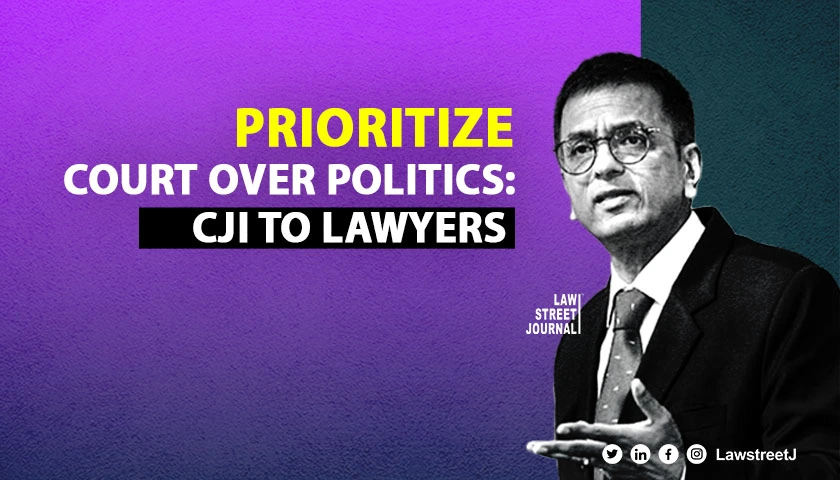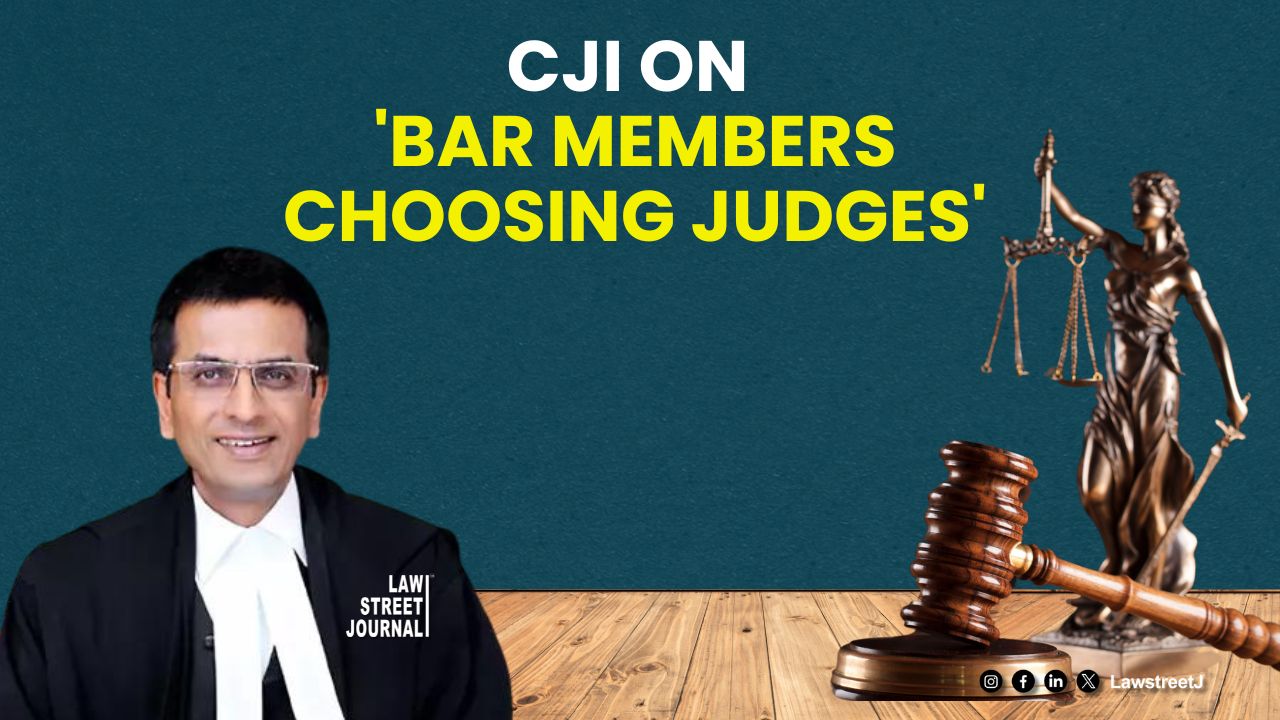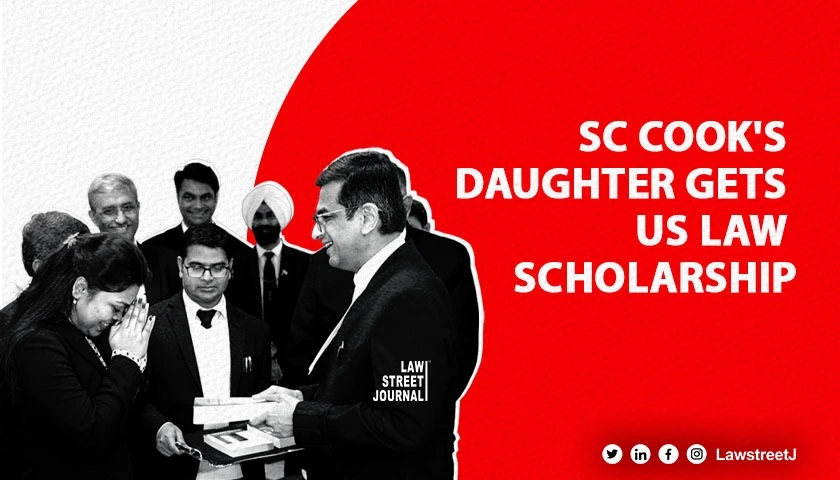NEW DELHI: Chief Justice of India D Y Chandrachud has asked lawyers to keep the court and the Constitution above their "political inclinations and beliefs", saying he was "very disturbed" by the latest trend of lawyers commenting of pending cases and court judgments.
Speaking at the centenary year celebration of the High Court Bar Association of Nagpur, he told lawyers, "You are first and foremost officers of the court, and the truth and dignity of our legal discourse is in your hands."
"To quote Aristotle, human beings are political animals and lawyers are no exception. However, for members of the bar one's highest loyalty must not lie with partisan interest, but the court and the Constitution. In many ways it is an independent bar which is a moral bulwark to protect the rule of law and constitutional governance," he said.
The CJI said there was a need for the lawyers to distinguish themselves from laypersons while reacting to court judgments.
Lawyers, similar to any other individuals, will have their own political inclinations and beliefs. However, they should rise above that and their highest loyalty should be to the courts and the Indian Constitution, he said.
"Once the judgment is pronounced, it is public property. As an institution, our shoulders are broad. We stand ready to receive both praise and criticism, bouquets and brickbats through journalistic pieces, political commentary, or on the social media, but as members and office bearers of bar associations with years of training and experience, you must distinguish yourself from the layperson while reacting to judgments of the court and engaging in legal discussion," Justice Chandrachud said.
"In a vibrant and argumentative democracy, like ours, most individuals have a political ideology or inclination," he added.
The CJI emphasised that an independent bar that is a moral bulwark to protect the rule of law and constitutional governance.
It was incumbent upon the members of the bar to communicate the court judgments to the public by utilising platforms such as opinion pieces in newspapers, media appearances, and public lectures, he said.
"In this sense, the bar has the potential to act as a bridge between the court and the citizens. In fulfilling your role. The bar can effectively translate complex legal concepts and proceedings into accessible language for the public, fostering a deeper understanding of our constitutional values and the true purpose of our judgments," the CJI said.
"The judiciary has time and again risen to the occasion to assert its independence and "non partisanship, a separation of powers from the executive, the legislature and vested political interests. We must not forget, however, that there is a close link between the independence of the judiciary and the independence of the bar," the CJI added.








!['Unprecedented,' 52,191 cases disposed of by Supreme Court in 2023 [Read Records]](/secure/uploads/2023/12/lj_4127_SC_disposes_of_cases.jpg)
!['Political background may not be sufficient to reject candidature of a HC judge,' Collegium rejects name of CPI(M) sympathiser [Read Recommendation]](/secure/uploads/2024/03/lj_5964_af308b13-978e-4939-9496-6e223b902b9f.webp)







